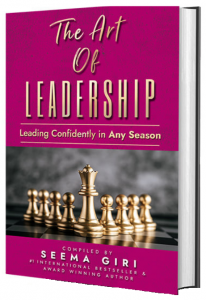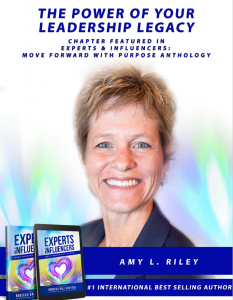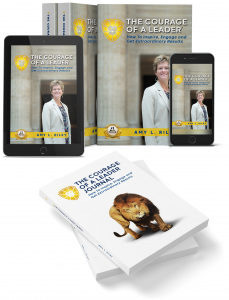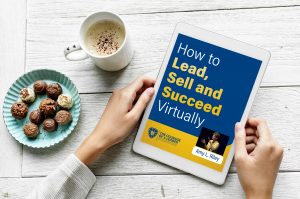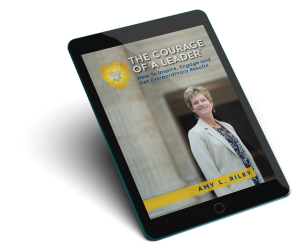In this episode, Andy Schwartz – President of AJ Adhesives – and I talk a lot about coaching kids sports. What does that have to do with leadership? Turns out, quite a lot! I think what Andy has to say will give you a new, inspiring perspective on teamwork.
About Our Guest:
In 1992, Andrew Schwartz returned to St. Louis and started AJ Adhesives with partner Jim Wiley, AJ Adhesives distributes industrial adhesives to all manufacturing sectors. As an entrepreneur, he took on a few partners and started an inline hockey roller rink, “The Rink,” and a restaurant, “King Louie’s.” In 1998, he divested from business outside of the core industrial sector, and he and his partners purchased an equipment company in Houston, Texas, that specialized in selling and servicing adhesive application equipment, continuous inkjet printers, and industrial labeling equipment. Schwartz and his family moved to Houston in 2000 to transition the purchase.
As of 2021, AJ Adhesives and Mid America Packaging had 51 employees with corporate headquarters in St. Louis and branch locations in Houston, Dallas, Tulsa, Seattle, Portland, Philadelphia, and Chicago.
He and his wife, Stephanie, and their three children moved back to St. Louis in 2008. Living closer to work offers him the time to coach basketball, baseball, and soccer.
About the Host:
Amy L. Riley is an internationally renowned speaker, author and consultant. She has over 2 decades of experience developing leaders at all levels. Her clients include Cisco Systems, Deloitte and Barclays.
As a trusted leadership coach and consultant, Amy has worked with hundreds of leaders one-on-one, and thousands more as part of a group, to fully step into their leadership, create amazing teams and achieve extraordinary results.
Amy’s most popular keynote speeches are:
The Courage of a Leader: The Power of a Leadership Legacy
The Courage of a Leader: Create a Competitive Advantage with Sustainable, Results-Producing Cross-System Collaboration
The Courage of a Leader: Accelerate Trust with Your Team, Customers and Community
The Courage of a Leader: How to Build a Happy and Successful Hybrid Team
Her new book is a #1 international best-seller and is entitled, The Courage of a Leader: How to Inspire, Engage and Get Extraordinary Results.
https://www.linkedin.com/in/amyshoopriley/
Call to action
How can you lead like a kids sports coach?
Thanks for listening!
Thanks so much for listening to The Courage of a Leader podcast! If you got inspired and/or got valuable leadership techniques you can use from this episode and think that others could benefit from listening, please share using the social media buttons on this page.
Do you have questions or feedback about this episode? Leave a comment in the section below!
Subscribe to the podcast
If you would like to get automatic updates of new The Courage of a Leader podcast episodes, you can subscribe to the podcast on Apple Podcasts or Stitcher. You can also subscribe in your favorite podcast app.
Leave us an Apple Podcasts review
Ratings and reviews from our listeners are extremely valuable to us and greatly appreciated. They help our podcast rank higher on Apple Podcasts, which helps us ignite The Courage of a Leader in more leaders! Please take a minute and leave an honest review on Apple Podcasts.
Teaser for next episode
My guest in 2 weeks will be Jim Kaitz, the President and CEO of AFP, the Association of Financial Professionals. In the episode we don’t talk much about finances! Instead, we talk about culture and talent development. We explore how to foster the desired culture day-to-day and how to continuously develop talent. Tune in March 22 to hear more!
Transcript
In this episode, Andy Schwartz, the president of AJ adhesives, talks a lot about coaching kids sports. What does this have to do with leadership? It turns out quite a lot. I think what Andy has to say will give you a new inspiring perspective on teamwork.
TCOL Intro/Outro:Welcome to The Courage of a Leader podcast. This is where you hear real life stories of top leaders achieving extraordinary results. And you get practical advice and techniques, you can immediately apply for your own success. This is where you will get inspired. And take bold, courageous action. I am so glad you can join us. I'm your host, Amy Riley. Now, are you ready to step into the full power of your leadership and achieve the results you care about most? Let's ignite The Courage of a Leader.
Amy Riley:So Andy, there is so much talk today about the importance of developing employees, giving them opportunities to grow coach them so that they feel empowered. And I know that you have a coaching perspective and a coaching approach in your personal and your professional life. Why do you naturally gravitate towards that coaching approach?
Andrew Schwartz:Well, I think because it's always about you know, like, like player development, you know, and especially when a coach and no like little kids, small kids, I mean with no some kids in different sports are big. And some people are little and they haven't hit their growth spurt yet they're not. You know, they're not big and strong like, like some of the other kids and they really have to work their craft to become better. And maybe then they hit the Roseburg at 13. And then they're terrific players. But if they don't work on their craft, when they're small and young, you know, they will never develop and it's you know, you're part of the coach's job is to motivate those kids, and keep them motivated to keep working on their craft and make it exciting. I think it's the same way with first time employees. And then you have to, we have to really like develop them and coach them and urge them and you know, like, reward them and challenge them, you know, like each and every day, so that they come into their own at some given time with the company, and then they then they produce and they're happy and the company's happy. And it's a great long term relationship.
Amy Riley:I love that. I just love the phrase, keep working on your craft. Because you don't know when that growth spurt will happen. Whether it's physically as a kid, or as a leader or a professional, here's the set of circumstances that come together that leverages your strengths and you can really shine.
Andrew Schwartz:Yeah, yeah. It's, it's, I feel like I've noticed that in every leg of every sport, you know, like with, you know, especially with children's maybe when you're when you're coaching, five, seven year olds, and you know, everybody wants to win, you know, like, everybody wants to win, you know, all those kids want to win. But boy boy up here, you know, like you're physically challenged with being small and weaker than the other team card. It gets demoralizing When. When you lose all the time, and you feel like it's because the kids are just bigger. Yes, that's when you got to stick to your craft and show little grit, and it's the coach's job to keep pulling that out
Amy Riley:of them. Oh, Andy, I feel it. I've been the parent of the set of kids who go out on the field, and the other team comes in. You're like, this team is huge. Three years older than our kids. How is this happening right now? Yeah, keep practicing your craft kids
Andrew Schwartz:working on it. You know, time will tell time.
Amy Riley:nt of AJ adhesives. It was in:Andrew Schwartz:Thank you. Thanks for having me.
Amy Riley:Yeah. So we've talked a bit about why the coaching approach is natural to you, Ryan, that your commitment to having people keep working their craft? How do you do that? Tell us how do you bring that particularly into the workplace, day to day?
Andrew Schwartz:No work continuous learning organization. So we always Yeah, like we, we, you know, like, we go on learning field trips, you know, we go to, you know, we go to learning events with, you know, like YPO, or, you know, Entrepreneurs Organization, for I'll take the whole inside staff, and we'll go for a day, and we'll listen to a speaker or two or go to a workshop. And then we either come back, or sit around and have dinner and talk about what we learned, and how we're going to get better. I mean, what y'all like those types of types of things. And it's, and it's for everyone, and I don't, like I can't think of a person who has ever said that was a boring day. So like, it's really like a field trip, campus, we get together, we get to maybe share a meal, or some coffee and a different environment, talk to other people that are like, in similar situations, maybe or other businesses, other people that work for companies, and you know, like the always high energy, but then we like we debrief, we we, we talk about what we learned and how we're going to implement it. And then, you know, that lasts for a good, you know, three, four or five months, and then, you know, like, it may get watered down a little bit, but we always have a couple of really good takeaways that we go back to, and I've always been, you know, like, I've always been one, you know, like, on coaching or living or, you know, like, keep it as simple as possible. You know, I mean, I mean, really, you know, I have a lot of ways, you know, the, you know, the one page business plan, or if, you know, like, like, if government could ever pass a bill, I feel like that bill should be on one page, you know, instead of 24,000 pages, who, who can follow 24,000 pages, that everyone had something on one page or know the bullet points, we can all understand it, we can all probably follow it. And so you kind of learn that, you know, you know, like, as a coach, you know, with young children. And, you know, like, like, after the game, especially after the game, you know, I would be our have experiences with with other coaches, or assistant coaches, they want to talk for 12 612 or 14 minutes above the game that we saw, but nobody wants to hear it.
Amy Riley:For ice cream,
Andrew Schwartz:you got about a 32nd window. And it's got to be sweet and short. And memorable is that 30 seconds is the most of their attention span that you can have is grateful. That's how it is when you're an adult to me, nobody wants to be lectured for six minutes on what your what corrective action needs to be done. So about a 32nd window. So you really have to be, you know, like, like, brief and precise. You know, think about it so that the takeaway is memorable. Yeah, I know how I am. You know, that's how I learned. That's what I take away when it's short. When somebody speaks and goes on and you know what, a lot of us fall off in that translation.
Amy Riley:I appreciate that. Keep it simple. And you're you're speaking to the power of a shared development experience. I know I'm working with organizations all the time. How do they invest their development dollars? What does that look like? What's in one on one? Coaching Watson in group leadership programs, I love this field trip. It's a shared group experience. And then you're having that debrief that follow up. And it could be not the 27,000 things we want to implement From what we heard today. But keep it simple, right? What are the? I don't know, it could be one to two things that you want it Yeah, that you want to do differently. And if you're talking about your that last three to five months, that's enough time to make truly sustainable behavior change, and that power in discussing with the team? How are we going to apply this? How are we going to do this differently? You know, I'm thinking that's an important message for all leaders, whether one employee went out and had a development experience, or there was that group field trip, have those conversations about what were the one to two takeaways? And what are you going to do differently as a result? So that doesn't just become a nice theoretical, interesting discussion? You had that one day? Yeah. Yeah. Yeah. What are the benefits, like when you and other leaders in AJ adhesives are are focusing on developing are talking about how to apply what we've learned? What benefits have you seen?
Andrew Schwartz:Oh, boy, you know, you see a lot of benefits, you see a lot of benefits outside the business, okay, like, from real people sharing personal personal experiences with their family, how things, you know, happened with their 17 year old girl, or 15 year old boy, you know, or, you know, like in a school situation, or like a team situation, and then being able to ask about it, and then then then take it home or feel like they're not even, they're not, they're not experienced in that situation by themselves, and other people have had it. So that, you know, that, that, you know, that that learning takeaway applies, both at home, and at work, and I'm a firm believer, if you're not happy at home, you can't be happy at work. Yeah. So you know, like, we know, like, we have a, you know, like, we have a performance based culture, where flexibility is built in. So I try to be as flexible as I possibly can. But we still have to have a performance culture. So you know, same goes, goes back to coaching, same thing, in an unprofessional coaching environment, you got to have some flexibility built in. Like, if you're a professional athlete, on a professional team, that's different. That's a job. You know, like, if you're late things happen, if you miss a workout session, things happen. But when you're coaching children, and you want them to love the game as much as you do, you got to have some flexibility built in, but there's still got to be performance. If there was, if there were times where some kids couldn't get to the workouts in a week, you know, like, I would have them commit to making the workouts on their own, ah, and they would easily do it. I mean, you're, you're, you're talking to a 12 year old kid, hey, I'm fine with that. But here's what I need from you, you need to go to the park and dribble the ball, you need to handle the you're juggling, you know, like, like work, you need to run and state that and get that like and run your sprints. You know, like, I'm okay, if you tell me you're going to do those on your own. And you wouldn't believe how many children would step up to the plate. You know, them, you know, like, they didn't get frustrated you like with the environment, you know, they just had to, like, they just had to do it on their own. I was talking to somebody, maybe a couple of weeks ago, and it was a, it was a great analogy, you know, they said, decide what you want and then pay for it. You know, like, decide what
Amy Riley:you want, and then pay
Andrew Schwartz:for a for it mean on it work for it. I like if you like if you want to, if you want to, in a sporting event, if you want to run a half marathon, if you decide you want to run with that, then pay for it, go do the work you need to do to run the half marathon. You know, don't commiserate about it, if that's what you decide to do, go pay for it. You know, and I think that's a message that's really kind of lost on a lot of children. You know, like, it really is it's like they can have whatever they want. They just got to have the grit, you know, in the like in the You know, in the gap, to know that they have to do it, Dad, they're the ones that have to pay for it. They're the ones that have to get up early in the morning. They're the ones that have to work late at night, they're the ones have to go to the library when everybody else is going to the bars. You know, if they want to get that law degree, if they want to get that medical degree, they're gonna have to say no to a lot of things that's paying for it.
Amy Riley:Yeah, yeah, a few things. I want to underscore about what you just said, Andy, I wrote down, learn for our lives. Right, that when we're building skills, you know, in professional context, there's skills for our lives that we can use in air in any area of life. And I love how you flow really easily between talking about what happens in the workplace and what happens with a kids sporting team. Right? And this flexibility, right, if you're not going to be able to do it as it's initially designed, okay, what are your ideas team member? How can this look differently? Or just like you would expect that kid on that sports team to commit to doing the practices on their own? Right, how do we how do we be flexible? How do we enable this to work for team members lives? And if they can't come when and how it was initially planned?
Andrew Schwartz:What's plan B? Right? So So you know, when, when, when COVID hits, when COVID hit and everybody had to work from home? Yeah, but you know, it wasn't a real difficult situation for us. Because where we didn't find it, you know, like, or title it work from home environment, or flexibility. We always had a built in, we always had a built in meaning like, I, you know, like, I'm a product of a single mother. No father died when we were young. And so my mom raised us there had to be flexibility built into her schedule. She didn't talk about it, it just, it just happened.
Amy Riley:It just was Yeah,
Andrew Schwartz:was. But no, today, you know, there's, there's a couple of single mothers that work with me. And they need to sometimes pick up three days a week at home at three o'clock, our day isn't over at three o'clock. Some work needs to be done, it doesn't need to be done, you know, like a 305. But, you know, like, we would have them set up to where they were set up for home. And they could finish up at 430. Right, you know, the paperwork that needed to be done that at that evening, so that they could start for everybody else at 6am when they start in the morning. Yeah, flexibility was built in which we just flipped the switch, it wasn't going to be from three to 430 or 330. To 430. It was going to be from eight to three. Yeah, no, that's the time it was going to be and they were just at home. But we had that flexibility built in, it was a little challenging, because, you know, everybody liked being around and I'm a I'm a face to face guy, you know, I really liked being around the environment. But you know, like the transition, and we were essential workers. So it was the transition went pretty smoothly, like way smoother than all of my competitors. In my industry, it was conscious to set them up with their, you know, with their computer with their phone with their, you know, their system at home, so they could work from home for that hour, or, you know, like that hour or two or when there was a snow day, you know, like they you know, snowed in, I don't want anybody driving, like sharing, like a crazy morning to get into the office so that they can start work, start work from home, you know, if it clears up by one o'clock, and you want to come in come in, you know, you can do that. But if not, you can still be productive from your home environment.
TCOL Intro/Outro:Yeah. I love that story about flexibility, and how it helped you more smoothly deal with a pandemic that was causing chaos on on many fronts, right, but there was flexibility already built in.
Andrew Schwartz:And we have a lot of 50 employees and nobody I can I can honestly say no one took advantage of it. And no one night before the the pandemic during the pandemic how it is now. No one No one took advantage of it. It wasn't keeping me up at night. His productivity was going down. You know what I've liked to have had everybody in the office like it used to be sure. Yeah, that's right. Yes.
Amy Riley:That fear of people taking advantage holds so many leaders and organizations back. And yeah, I just I hate to see it. Yeah, one phrase that you said earlier Annie that I that I wrote down and want to come back to, you know, when you're talking about coaching kids in a sport, you want them to love the game. And we forget that as leaders in organizations, right, like we want our colleagues, we want our team members to love the game. Yeah, right. Go ahead.
Andrew Schwartz:No, I was just gonna say, I agree. I'm sorry, I didn't want to interrupt you.
Amy Riley:It was like thinking about like, what would what would you do? You know, and for you, what do you do as a coach of a kid sporting team to help them appreciate and learn and love the game? Right? How do we translate that into the workplace? Because that's ultimately what we want? Is everybody loving to play this game we call business.
Andrew Schwartz:So you know, you know, I always tell them at a young age, pressure is good, stress is bad. You know, pressure is good stress, that pressure challenges, you know, and you want to build confidence in yourself that you can meet the challenge. Stress is bad. Stress is from bad preparation, no preparation, no, no thought going into it. But you know, like, that's what causes stress, the pressure is good. So, you know, like, like, in order to love the game, you know, there's, there's no glory in and there's no glory in losing, there's no glory in the like, in that celebrating the victories? You also I always try to encourage the kids, and how does that make you feel when they do something? Well, you know, instead of just telling them like, hey, great job, Johnny, you don't have to kind of how does that make you feel, and see what his reaction was, and then kind of like, build on that. And I would always tell them, you know, take chances, you got to take chances, take that shot, you know, like that diving, play, still the bass and he wouldn't throw, rather, you're like, I'd rather choke, like on a loss, then you know, like, then then then be mediocre. Try to encourage that. And I was probably, you're like, you know, like, I don't know, you're like that I was really enthusiastic. When the kids did something really spectacular. On the field, I would really, I would be the first one, you'll like a fan, you're in for that person, you know, and then you'll like making them feel good about it, you'll like all the time. And so you know, that you'll have that. You know, I think a lot of coaches and a lot of business owners or managers, you know, they'll celebrate the victories and hey, you know, your real good defensive player wants to sit in the background and just play defense, because we got other people that are real good shooters, and they can shoot so you get them all to them, and they'll shoot and take every shot. Well, I was never like that. Basketball, my girls basketball team, I'm like, everybody's gonna score. Everybody's gonna take shots. Everybody's gonna learn how to play. There's no glory in just playing defense and passing the ball. I want you to have points.
Amy Riley:And we're gonna keep working all aspects of the craft.
Andrew Schwartz:That's right, right. Yeah, that's right. Well, that's the same in business as somebody sits in the background, and doesn't get them doesn't get to score points or live in the glory. How much fun is that? Yeah, like, how does that keep them? How does that keep their love of the game, you know, one of our core values is everybody's a professional selling machine. Know, everyone is a professional selling machine. That's one of our core values. To that, that means when when customer service, or the warehouse person does something a little bit extra, because they're thinking about, you know, selling, it's indirect, but it really is way more direct than, you know, like the guy that gets the order. So, you know, we celebrate that I celebrate that I recognize that I look for it. Now, just like I look for the little things, like you know, like when one of my players when they were young. They're a little things and be able to encourage them to keep working on that.
Amy Riley:Yes, yes.
Andrew Schwartz:ow, here they all they're all:Amy Riley:Yeah. I love it. Well, yeah. What games can we play? Right? What can you be on the lookout for? And reward?
Andrew Schwartz:Yeah, yeah. So same business.
Amy Riley:Yeah. Well, actually, I think that this is really interesting to think about, how do we transfer how we would coach kids into how we manage employees, field trips? Keeping it simple. Right, exploring it together. Taking chances, celebrating, being flexible. Yeah. So many great messages, Andy,
Andrew Schwartz:thank you. I learned, I brought more. I brought more of the meal, the coaching the kids, to my mother brought more learning lessons from coaching the kids to my business than I did from my business or life experiences to coaching the kids. I believe that Yep. Really, it was really a great dynamic for me.
Amy Riley:Great. This has been a really fun and useful lens to look through today with you, Andy, on leadership and how we can be more effective in the workplace. Thank you for being with me today on the courage of a leader podcast. Oh, I've enjoyed it.


 A Summary of The Courage of a Leader® 4 Pillars
A Summary of The Courage of a Leader® 4 Pillars